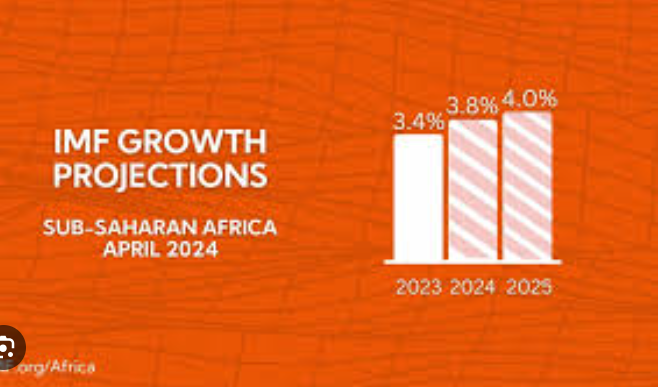By Joke Kujenya
IN A recent press briefing held in Washington DC, the International Monetary Fund (IMF) revealed optimistic projections for Sub-Saharan Africa’s economic growth.
According to Abebe Selassie, Director of IMF’s African Department, the region’s economy is poised to expand from 3.4% in 2023 to 3.8% in 2024, with expectations of further growth reaching 4.0% by 2025.
Selassie highlighted the positive strides made in economic recovery, attributing the anticipated growth to various factors including decisive actions by central banks which have led to a halving inflation in the early months of the year.
He noted a stabilization in public debt at around 60% of Gross Domestic Product (GDP), marking a significant development after a decade-long upward trend.
Furthermore, with global financial conditions improving, several countries have been able to return to international markets, ending a two-year hiatus.
However, Selassie cautioned that challenges persist, with many countries still grappling with high borrowing costs and limited funding sources.
He emphasized the importance of sustaining reforms to bolster macroeconomic conditions, ensuring the region’s resilience against future shocks and fostering job creation, economic diversification, and improved living standards.
The director outlined three key policy priorities to address the region’s challenges, including enhancing public finances through domestic revenue mobilization, reducing inflation, and implementing reforms to enhance skills development, innovation, and trade integration.
Selassie stressed the importance of internation support, with the IMF reaffirming its commitment to assisting the region, having already provided $58 billion in financing since the onset of the pandemic.
In his closing remarks, Selassie expressed confidence in Sub-Saharan Africa’s potential for growth, stating that with the right policy choices, the region is poised to seize opportunities and ensure a prosperous future.





